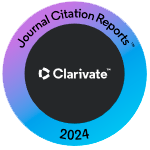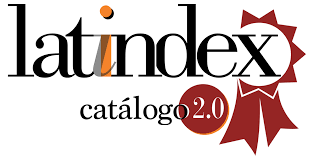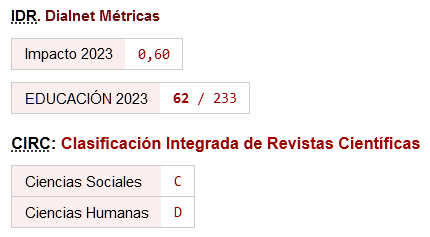Pro-innovation discourses in Geography and History classes
A lexicometric analysis
DOI:
https://doi.org/10.46661/ijeri.6855Keywords:
Educational Innovation, Discourse Analysis, Quantitative Analysis, Secondary SchoolAbstract
Currently, educational innovation is an unavoidable premise for teachers, school headteachers and families. This contribution aims to provide better understanding of the configuration of pro-innovation discourses from a lexicometric perspective. To this end, we applied various textual statistical strategies to the analysis of a corpus made up of twelve verbal texts from four discursive fields: the education policy, the school, the Social Sciences Department and the Geography and History class in which, finally, pro-innovation discourses become practices. The results obtained, which focus on the discursive associations of innovation (collocations, combinations, concordances and co-occurrences), indicate that the meaning of educational innovation is taken for granted, that it has only positive connotations and that it functions as an argument to justify educational reform. In addition, it is noted that innovation is especially linked to new technologies and business vocabulary. We conclude this paper with a defence of the usefulness of the techniques used, but also with a warning of the need to complement the analysis carried out with other linguistic and interpretative techniques.
Downloads
References
Agrusti, F. (2014). Prime analisis lessicometriche sull’esperimento Nulla dies sine linea experiment. CADMO, 2, 13-40. https://www.torrossa.com/en/resources/an/3014911. https://doi.org/10.3280/CAD2014-002003
Benzécri, J. P. (1973). L’Analyse des Données. Tomo I: La Taxinomie. Dunod.
Benzécri, J. P. (1976). L’Analyse des Données. Tomo II: L’analyse des Correspondances. Dunod.
Breyer, L. (2018). Patterns of difference in understandings of equity and social justice in adult education policies: Comparing national reports in international contexts by a lexicometric analysis. Studies in the Education of Adults, 50(2), 152-166. https://doi.org/10.1080/02660830.2018.1522943
Breyer, L., & Schemmann, M. (2018). Comparing national adult education policies on a global level. An exploration of patterns of difference and similarity in international policy contexts by method of lexicometric analysis. International Journal of Lifelong Education, 37(6), 749-762. https://doi.org/10.1080/02601370.2018.1553211
Cañadel, R. (2017a). La innovación educativa: ¿Un paso más hacia la educación neoliberal? Nuestra bandera: revista de debate político, 236, 86-95.
Cañadel, R. (2017b). Las trampas de la “Nueva” Innovación educativa. El Viejo Topo, 354-355, 80-87.
Carrier, N. (2017). How educational ideas catch on: the promotion of popular education innovations and the role of evidence. Educational Research, 59(2), 228-240. https://doi.org/10.1080/00131881.2017.1310418
Cascón-Pereira, R., Moral, J. D., & Brunet, I. (2019). An exploration of the meanings of innovation held by students, teachers and SMEs in Spain. Journal of Vocational Education y Training, 71(1), 1-22. https://doi.org/10.1080/13636820.2019.1575894
Convery, A. (2009). The pedagogy of the impressed: how teachers become victims of technological vision. Teachers and Teaching: theory and practice, 15(1), 25-41. https://doi.org/10.1080/13540600802661303
Fernández-González, N., & Monarca, H. (2018). Los sentidos de la rendición de cuentas en el discurso educativo. Perfiles latinoamericanos, 26(51), 379-401. https://doi.org/10.18504/pl2651-015-2018.
Gramigna, A. (2010). La paradoja de la innovación inmóvil: reflexiones críticas sobre la mitología educativa de la agenda de Lisboa. Revista española de educación comparada, 16, 43-73.http://revistas.uned.es/index.php/REEC/article/view/7524
Gutiérrez-Lestón, C., Pérez-Escoda, N., Reguant, M., & Eroles, M. (2020). Innovación de educación emocional en el ocio educativo: el Método La Granja. Revista de Investigación Educativa, 38(2), 495-513. http://dx.doi.org/10.6018/rie.405721.
Hall, G. E. (2014). Evaluando los procesos de cambio. Midiendo el grado de implementación (constructos, métodos e implicaciones). Revista Iberoamericana sobre Calidad, Eficacia y Cambio en Educación, 12(4e), 99-130. https://revistas.uam.es/index.php/reice/article/view/2839/3056
Hofman, R. H., de Boom, J., Meeuwisse, M., & Hofman, W. H. A. (2013). Educational Innovation, Quality, and Effects: An Exploration of Innovations and Their Effects in Secondary Education. Educational Policy, 27(6), 843-866. https://doi.org/10.1177/0895904811429288
Iparraguirre, M. S., & Scheuer, N. (2016). “¿Cómo hablan y escriben mis alumnos?”: Concepciones lingüístico-educativas de docentes de nivel primario. Estudios pedagógicos, 42(1), 139-158. http://dx.doi.org/10.4067/S0718-07052016000100009
Martínez Martín, M., & Jolonch i Anglada, A. (Coords.) (2019). Las paradojas de la innovación educativa. Horsori.
Moffatt, K., Panitch, M., Parada, H., Todd, S., Barnoff, L., & Aslett, J. (2016). “Essential cogs in the innovation machine”: The discourse of innovation in Ontario educational reform. Review of Education, Pedagogy, and Cultural Studies, 38(4), 317-340. https://doi.org/10.1080/10714413.2016.1203680
Montanero Fernández, M. (2019). Métodos pedagógicos emergentes para un nuevo siglo. ¿Qué hay realmente de innovación? Teoría de la educación, 31(1), 5-34. https://doi.org/10.14201/teri.19758
Pardo Abril, N. G. (2013). Cómo hacer análisis crítico del discurso. Una perspectiva latinoamericana. Universidad Nacional de Colombia.
Pascual, J. (2019). Innovación educativa: un proceso construido sobre relaciones de poder. Revista Educación, Política y Sociedad, 4(2), 9-30. https://revistas.uam.es/reps/article/view/12205
Pérez Pueyo, Á., & Hortigüela Alcalá, D. (2020). ¿Y si toda la innovación no es positiva en Educación Física? Reflexiones y consideraciones prácticas. RETOS. Nuevas tendencias en Educación Física, Deporte y Recreación, 37, 639-647. https://recyt.fecyt.es/index.php/retos/article/view/74176. https://doi.org/10.47197/retos.v37i37.74176
Richter, J., Hale, A. E., & Archambault, L. M. (2019). Responsible innovation and education: integrating values and technology in the classroom. Journal of Responsible Innovation, 6(1), 98-103. https://doi.org/10.1080/23299460.2018.1510713
Serdyukov, P. (2017). Innovation in education: what works, what doesn’t, and what to do about it? Journal of Research in Innovative Teaching & Learning, 10(1), 4-33. https://doi.org/10.1108/JRIT-10-2016-0007
Zabeli, N., & Kaçaniku, F. (2021). Policy Analysis for Mapping the Discourse of Inclusion in Higher Education System in Kosovo. Journal for Critical Education Policy Studies, 19(2), 452-483. http://www.jceps.com/wp-content/uploads/2021/09/19-2-17-fjok.pdf
Published
How to Cite
Issue
Section
License
Copyright (c) 2023 Jose Antonio Pineda-Alfonso, Diego Luna-Delgado, Francisco F. García-Pérez, Olga Moreno-Fernández

This work is licensed under a Creative Commons Attribution-NonCommercial-NoDerivatives 4.0 International License.











